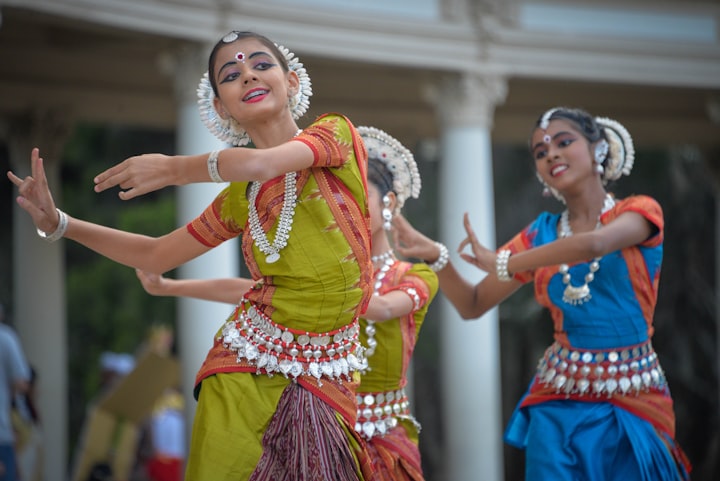Cultural Anthropology
Exploring Diverse Traditions, Customs, and Beliefs

Cultural anthropology is a fascinating field that delves into the study of human societies and cultures across the globe. It seeks to understand the diversity of traditions, customs, and beliefs that shape our world. In this article, we will explore the important parts of cultural anthropology and the significant contributions it makes to our understanding of humanity.
Definition and Scope of Cultural Anthropology
Cultural anthropology is a branch of anthropology that focuses on the study of human cultures. It examines the ways in which people live, their beliefs, practices, social structures, and how they make meaning in their lives. Cultural anthropologists employ various research methods, including participant observation, interviews, and archival research, to gain insights into different cultures and societies.

Cultural Relativism
One of the fundamental principles of cultural anthropology is cultural relativism. It is the understanding that all cultures have inherent value and should be evaluated and understood within their own cultural contexts. Cultural relativism encourages anthropologists to approach cultures with an open mind, suspending judgment and avoiding ethnocentrism. By embracing cultural relativism, we gain a deeper appreciation for the diversity and richness of human experiences.

Fieldwork and Participant Observation
Fieldwork and participant observation are crucial methodologies used by cultural anthropologists to immerse themselves in the cultures they study. Anthropologists spend extended periods of time living among the people they research, observing their daily lives, participating in rituals and activities, and building relationships. This immersive approach allows researchers to gain a holistic understanding of the culture from the inside, capturing nuances and complexities that may not be apparent from an outsider's perspective.

Cultural Diversity
Cultural anthropology reveals the immense diversity that exists among human societies. From indigenous communities in remote areas to urban metropolises, every culture has its unique customs, traditions, and ways of life. Cultural anthropologists document and analyze this diversity, highlighting the variations in social organization, kinship systems, economic practices, religious beliefs, and artistic expressions across cultures. Understanding and appreciating cultural diversity is vital for fostering intercultural understanding and promoting global harmony.

Kinship and Social Organization
Kinship systems and social organization are key areas of study in cultural anthropology. Kinship refers to the system of relationships, such as family ties and marriage, that define social connections within a society. Cultural anthropologists examine the various kinship systems and social structures that shape individuals' roles, responsibilities, and identities within their communities. By studying kinship and social organization, we gain insights into the ways cultures transmit values, maintain social cohesion, and navigate interpersonal relationships.

Language and Communication
Language is a powerful tool for cultural expression and communication. Cultural anthropologists investigate the complexities of language, studying its structures, variations, and cultural meanings. They explore how language influences social interactions, shapes identity formation, and reflects cultural values and norms. By studying language, cultural anthropologists uncover the intricate ways in which communication shapes and is shaped by culture.

Rituals, Festivals, and Ceremonies
Rituals, festivals, and ceremonies are significant aspects of cultural anthropology. These cultural practices play crucial roles in expressing identity, reinforcing social cohesion, and marking important life events or societal transitions. Cultural anthropologists study the symbolism, meaning, and social functions of rituals across different cultures. Whether it's a wedding ceremony, a religious rite, or a cultural festival, these rituals offer insights into the collective beliefs, values, and aspirations of a community.

Gender and Sexuality
Cultural anthropology examines the ways in which cultures construct and understand gender and sexuality. It explores the social expectations, roles, and power dynamics related to gender, as well as the cultural norms and practices surrounding sexuality. By analyzing gender and sexuality within different cultural contexts, cultural anthropologists challenge essentialist views and highlight the diverse ways in which societies conceptualize and experience these aspects of human identity.

Globalization and Cultural Change
In an increasingly interconnected world, cultural anthropology sheds light on the impact of globalization on traditional cultures. Globalization brings about cultural change, including the adoption of new technologies, the spread of consumerism, and the homogenization of certain cultural practices. Cultural anthropologists study how these changes affect local communities, examining issues of cultural preservation, identity formation, and the negotiation of cultural boundaries in the face of globalization.

Applied Anthropology
Applied anthropology is an important branch of cultural anthropology that seeks to apply anthropological knowledge and methodologies to address real-world problems. Applied anthropologists work in areas such as development, public health, education, and social justice, collaborating with communities to develop culturally appropriate solutions. Through applied anthropology, cultural anthropologists contribute to positive social change and advocate for the rights and well-being of marginalized communities.

Cultural anthropology offers a comprehensive understanding of the diverse traditions, customs, and beliefs that define human cultures. By employing fieldwork, participant observation, and cultural relativism, cultural anthropologists provide invaluable insights into the intricacies of social organization, kinship systems, language, rituals, gender, and globalization. Their work fosters intercultural understanding, challenges ethnocentrism, and promotes cultural diversity and social justice. Cultural anthropology plays a crucial role in unraveling the complexities of human societies, ultimately enriching our collective knowledge and appreciation of humanity's remarkable diversity.
About the Creator
Kenneth Argüello
Welcome to my page! In this space Ill be sharing my passions and curiosities






Comments
There are no comments for this story
Be the first to respond and start the conversation.